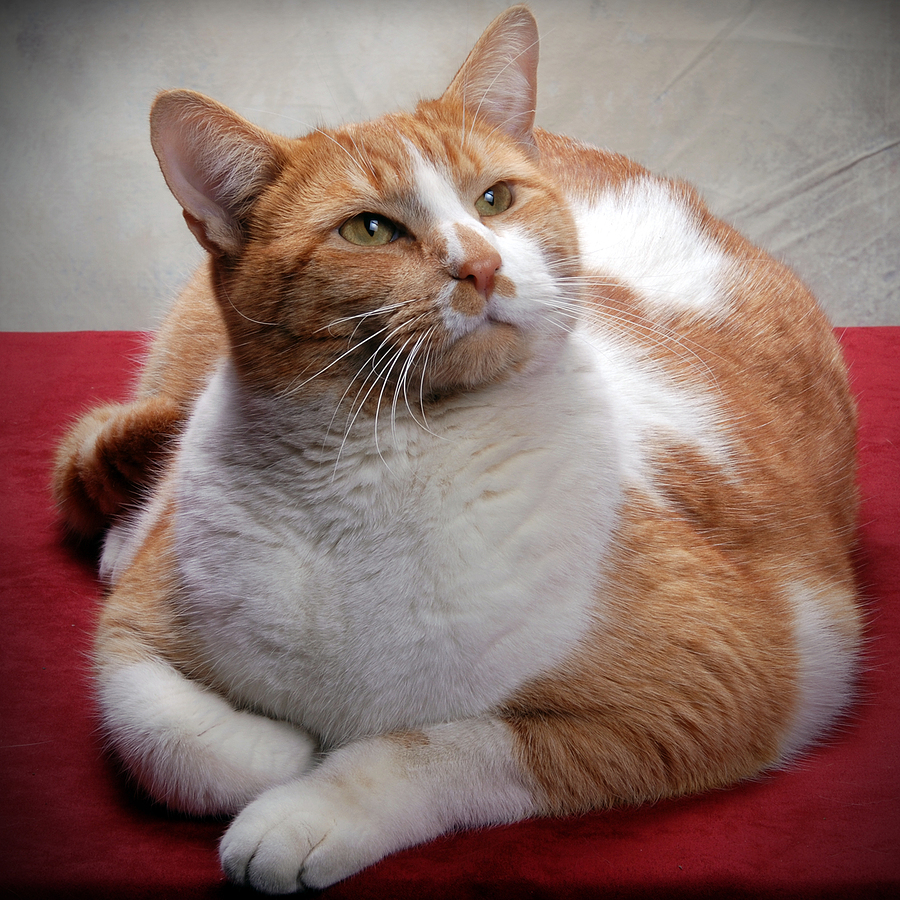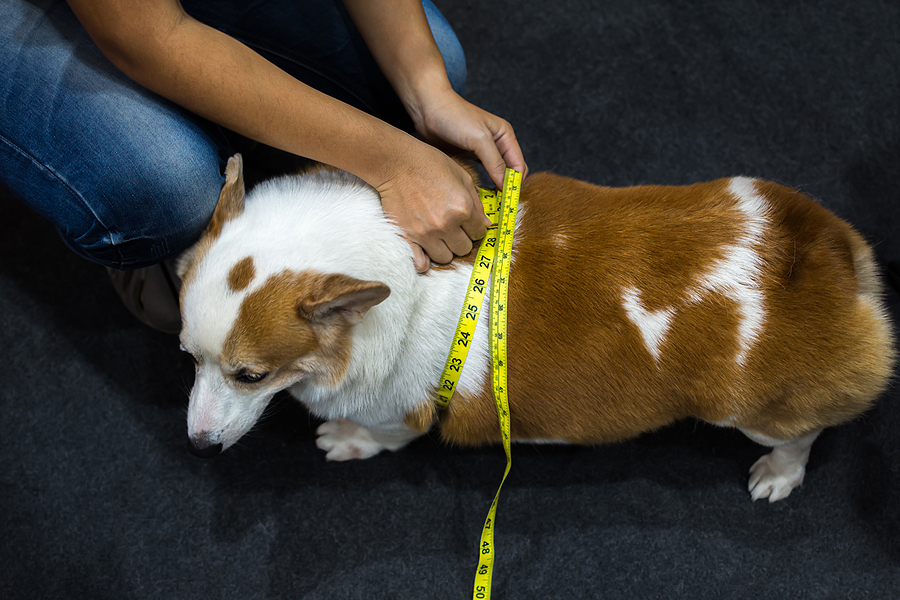If you’re a pet parent who finds it hard to resist that furry little face gazing up at you for treats, you’re not alone. The 2018 National Pet Obesity Survey estimates that almost 60 percent of cats and about 56 percent of dogs are overweight or obese. The same survey also indicated that the majority of veterinary and pet owner respondents have attempted to help pets lose weight, and with good reason–there is a price to pay for that extra weight. Not only can obesity shorten your pet’s lifespan and lower their quality of life, but it can also increase their fear, anxiety, and stress.
- Obesity and pain. Dogs and cats who are overweight are at higher risk of arthritis, an inflammatory disease that leads to stiffness and mobility problems. Because fat releases inflammation in the body, overweight pets with arthritis can become even more painful. Obesity is also associated with an increased risk of intervertebral disc disease in dogs, another painful condition. If your pet can no longer get on the couch, manage the stairs, or go on walks, their world becomes limited and less enriched, affecting their emotional health. Studies have shown that even a 6- to 8-percent weight loss in overweight dogs with arthritis can improve mobility, so taking small steps toward weight management can make a huge difference in decreasing your pet’s chronic pain.
- Obesity and respiratory disease. Obesity has been linked to tracheal collapse, a common condition in small dogs that causes chronic coughing. Obesity can also impair lung function in cats and make it harder for dogs to breathe when they’re already breathing faster, such as when you’re walking into the veterinary clinic. If you have an overweight, smoosh-faced dog or an overweight cat with asthma, fear of a vet visit can contribute to respiratory distress and vice versa. Weight management can help your pet breathe better at home and at the veterinary clinic.
- Obesity and other diseases. Cats who are overweight are at much higher risk of developing diabetes, a condition that requires insulin injections for treatment. Poking your cat with a needle twice daily and bringing them to the veterinarian for numerous visits for lab work causes significant stress. Obesity has also been linked to a long list of other diseases that require multiple visits to the vet, including feline lower urinary tract disease and ACL tears. Overweight cats often lose the ability to groom themselves and become matted and dirty, necessitating the stressful experience of full body shaves or sanitary clips.
- Obesity and your pet’s veterinary experience. At the vet clinic, overweight pets can have a more stressful experience for reasons you may not have considered. It’s often more difficult to find their vein for blood draws or IV catheter placement, sometimes requiring multiple attempts by even the most experienced staff member. If your overweight pet has arthritis, simply being handled for exams, nail trims, or x-rays can worsen pain and cause fear, anxiety, and stress.
The advantages of keeping your pet at an ideal body condition are clear, and you can start by taking small steps toward weight management. Have all family members write down everything they feed over the course of a week, including all treats, table scraps, and pet food using a measuring cup (not a Solo cup or Big Gulp!) for accuracy. You might find surprises, such as heaping scoops rather than level scoops or inadvertent double meal feeding.
Treats are important for positive reinforcement and maintaining the connection we have with our pets, but they don’t need to be the size of your pet’s head. Breaking up a big treat into pea-size morsels that you put into a food puzzle allows for more treat opportunities and greater enrichment for your pet’s mental health.
Talk to your veterinarian about any mobility issues you’ve noticed, such as being slow to get up or lie down or hesitating before jumping. They usually indicate discomfort or pain, and addressing them will improve your pet’s activity and quality of life.

Your veterinarian can also recommend a weight loss diet, which is usually lower in calories but higher in protein and fiber so your pet feels more full. Celebrate small wins–even a ¼- to ½-pound weight loss can be significant for a cat or small dog. Weight management can be challenging for even the most determined pet parent, but with so many benefits, consider it a preventive tool for your pet’s physical and emotional health.
This article was reviewed/edited by board-certified veterinary behaviorist Dr. Kenneth Martin and/or veterinary technician specialist in behavior Debbie Martin, LVT.








